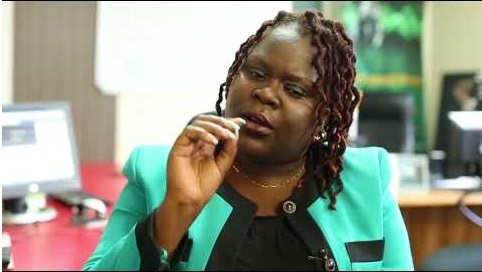|
Getting your Trinity Audio player ready…
|
Writes Linda Masarira (GBV Survivor, African feminist, Gender and Women’s Rights Advocate)
As an African feminist, I believe in the importance of gender equality and the empowerment of women. However, I also recognize the value of family and the need to protect all survivors of gender-based violence (GBV). My brand of feminism is not about superiority or domination but about creating a balanced and just society where all individuals can thrive.
Gender equality is not a women’s issue but a human rights issue. It’s essential to recognize that gender inequality affects not only women but also men and that we must work together to dismantle the patriarchal systems that perpetuate discrimination and violence.
As a women’s rights advocate and gender equality advocate, I’ve faced challenges in various spheres, including the workplace, home, and politics. However, I’ve learned that being a feminist doesn’t make one immune to facing challenges in these fields. Instead, it’s essential to build unity and support systems to overcome these obstacles.
At home, building unity means recognizing the value of each family member and working together to create a supportive environment. It means teaching children about gender equality, respect, and consent. It means creating a safe space for open communication and conflict resolution.
In the workplace, building unity means promoting inclusive policies and practices that benefit all employees, regardless of gender or sexual orientation. It means recognizing and addressing systemic barriers and biases that hinder career advancement and equal pay.
In politics, building unity means collaborating with like-minded individuals to push for policies and laws that promote gender equality and challenge GBV. It means holding leaders accountable for their actions and advocating for inclusive decision-making processes.
Journalists have a critical responsibility and duty of care in the fight against Gender-Based Violence (GBV) and in reporting on family matters. Victim shaming is harmful and unproductive, while sensationalized stories that lack factual accuracy can be counterproductive. The pursuit of a sensational story should never prioritize clicks over the well-being of victims.
A fundamental ethical principle in journalism is to protect the identity of victims in sensitive family and legal matters involving abuse, as naming them can create a stigma that discourages others from coming forward. The media must distinguish between what is in the public interest and what is merely of public interest. While some stories may be intriguing, they may not necessarily serve the public good. The media must prioritize ethical reporting over gossip and respect individuals’ privacy, even if the public may not understand the difference.
In conclusion, being a balanced African feminist means embracing equality, family, and unity. It means recognizing the interconnectedness of gender equality, family values, and social justice. By working together and building unity, we can create a society that values and respects all individuals, regardless of gender or sexual orientation.
Let’s rise together and build a brighter future for all. I will continue with my fight against GBV, building peaceful homes, communities, and nations and women’s rights advocacy. God never gives anyone a burden they can’t carry. What is important is how you carry yours. I choose to carry mine with style.
